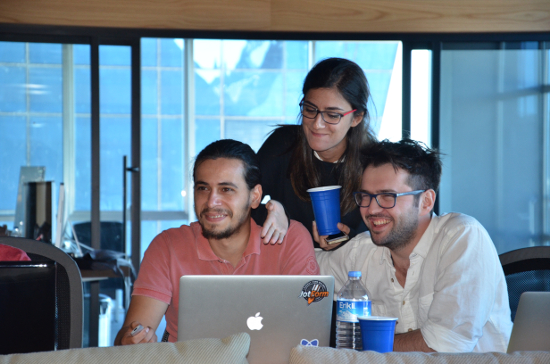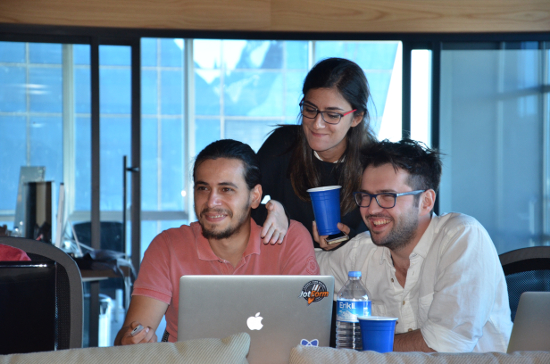Getting people to work together can be hard. Jotform not only succeeds at this, but excels. We do so with people in two main offices, and exotic locations around the world. Thailand, the Philippines, Indonesia, Hong Kong, Turkey, the Netherlands, and Montenegro are all places Jotform has been built and maintained. How does this happen?
The first way JotFormers stay focused on delivering a world class user experience is by designating our teams as either all co-located, or all remote. We don’t intermix the two by having three people in an office, and another two separate. The way co-located groups interact and work together is entirely different than how remote teams work. When you’re all in the same office you can stop what you’re doing, have a conversation, sketch out ideas on a dry erase board, and quickly come to a consensus. These are our product, design, and development teams. They form our core- the heart and soul of JotForm.
To contrast, remote teams thrive on structured communication and workflows. These are our Support and Maintenance teams. Inquiries come in and are responded to in a sequential basis. Supporters can be anywhere in the world and respond to them as they come. In turn, escalations that require a fix or new feature are sent to the Maintenance team. They take the next prioritized ticket in each of their product areas, and fix it. The Support and Maintenance teams are the eyes, ears, and arms that keep watch, listen, and care for the day to day needs of our users.
View from a JotFormer working remotely
The mouth of Jotform is the marketing team, headquartered in sunny San Francisco, CA. It shares the story of Jotform ensuring people who need a form, find JotForm. It recently welcomed Podo, our quirky feline companion.
The systems we use to make all this happen are both built in house, and selected from world class tools from around the web. We’ve used HipChat in the past, and now Slack for real time chat communications. Google Docs proves to be a convenient medium for sharing content and mutually edited documents. Thoughtful use of our corporate Gmail keeps broader groups of people on task and informed.
For our internal ticketing system though, we realized we needed to do this ourselves. There are numerous excellent tools for tracking fixes and feature requests, but we wanted to design our customer experience from the ground up. We built a system that streamlines customer questions in our forum, which makes it easy for supporters to respond to. Escalations are delivered directly to our Maintenance team, and answers are searchable by everyone. This provides customers with as seamless a user experience as possible, oftentimes being able to find answers to their questions from previous threads.
Jotform wasn’t built overnight, nor did we earn the trust of countless faithful users that have come to love and enjoy using it. Keeping our customers happy is our number one goal, and we carefully built our teams and internal systems to achieve it.
















Send Comment:
1 Comments:
More than a year ago
The JotFoM article on "delivering an amazing customer experience with a global team" is very interesting. The article talks about how the user experience can be affected because of cultural differences and communication styles even when members of the team are co-located in the same building.